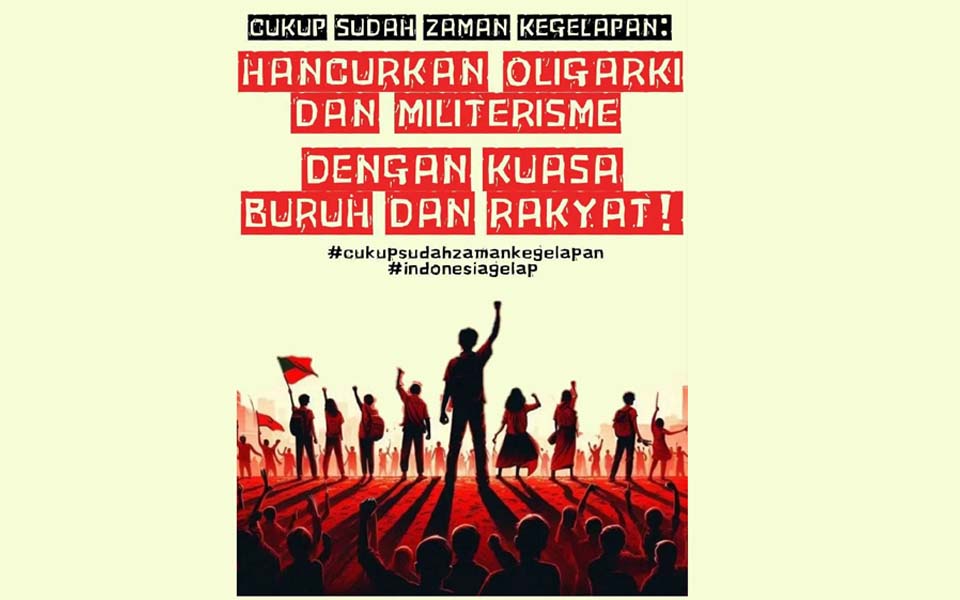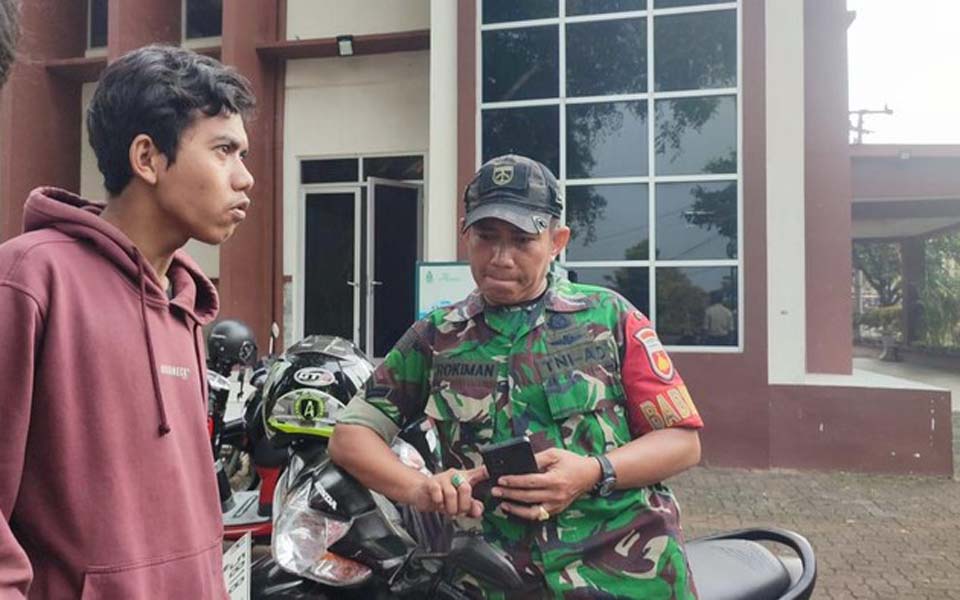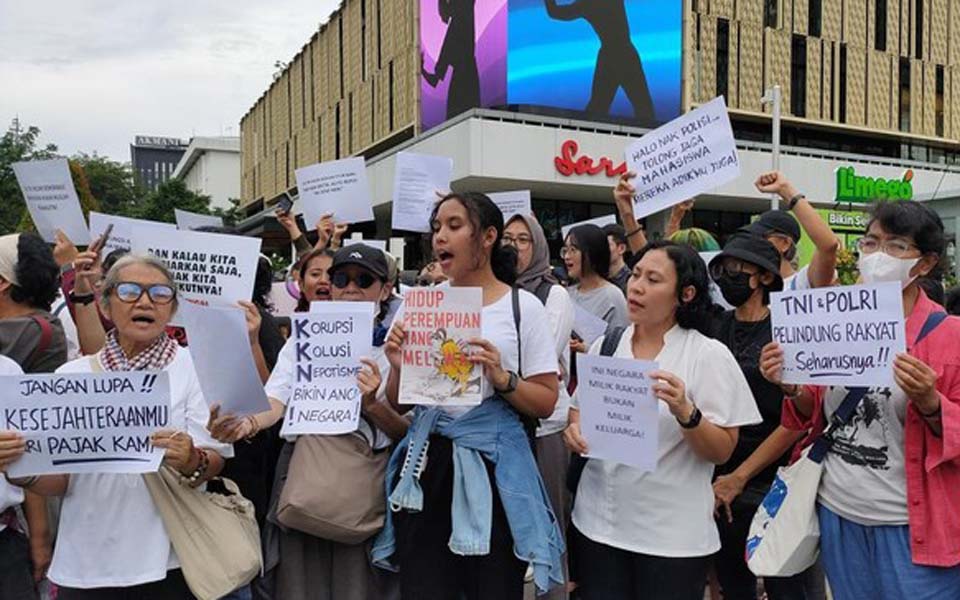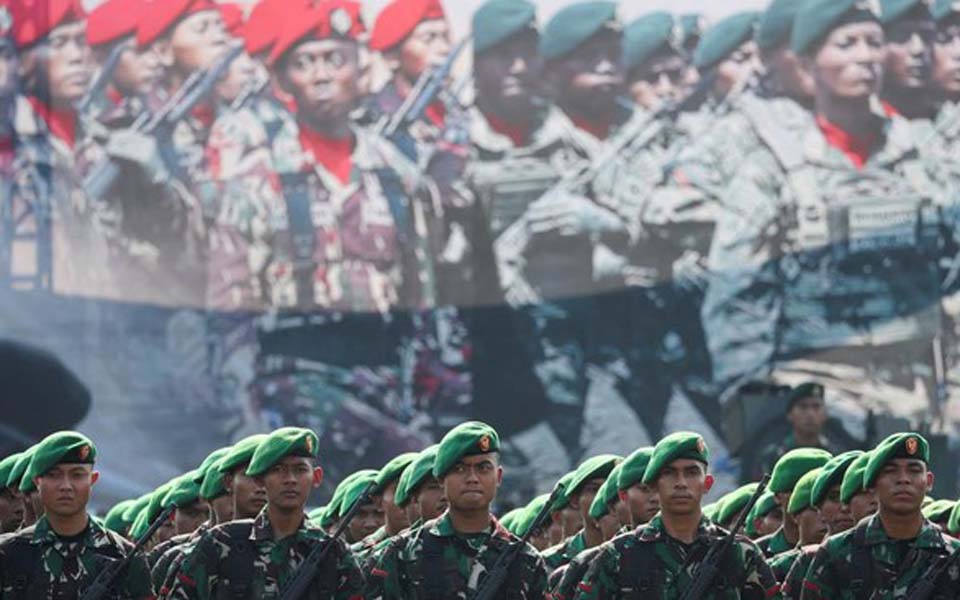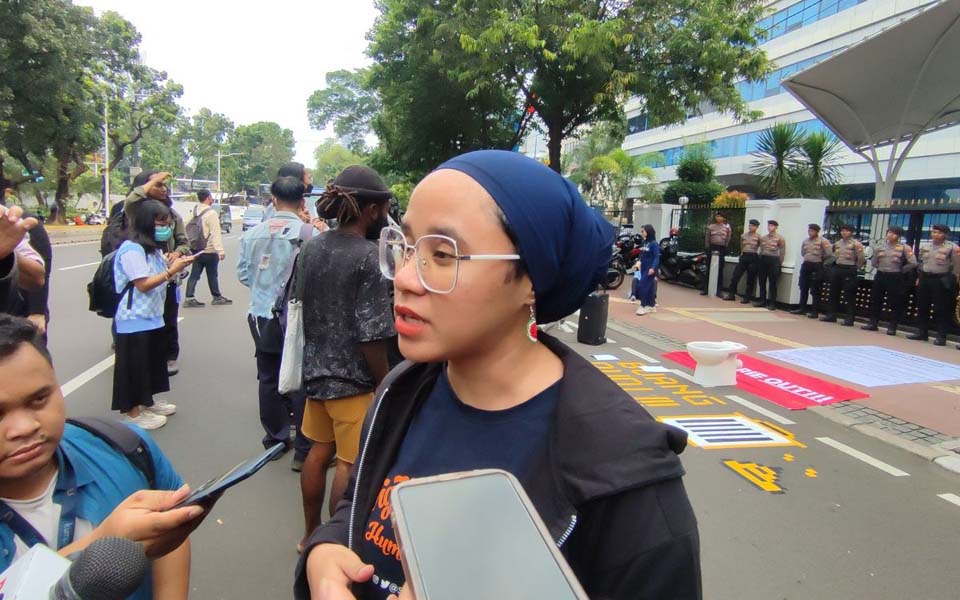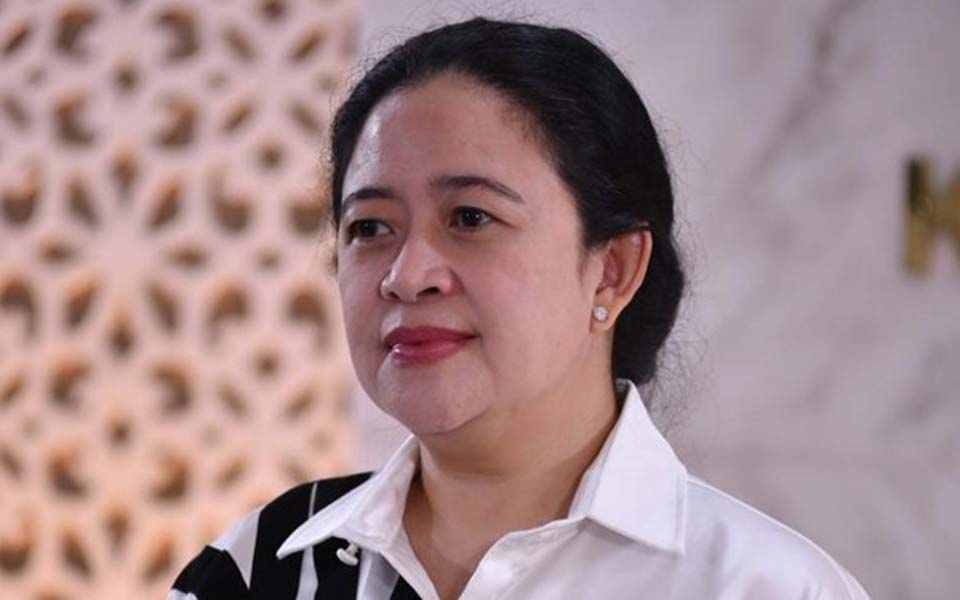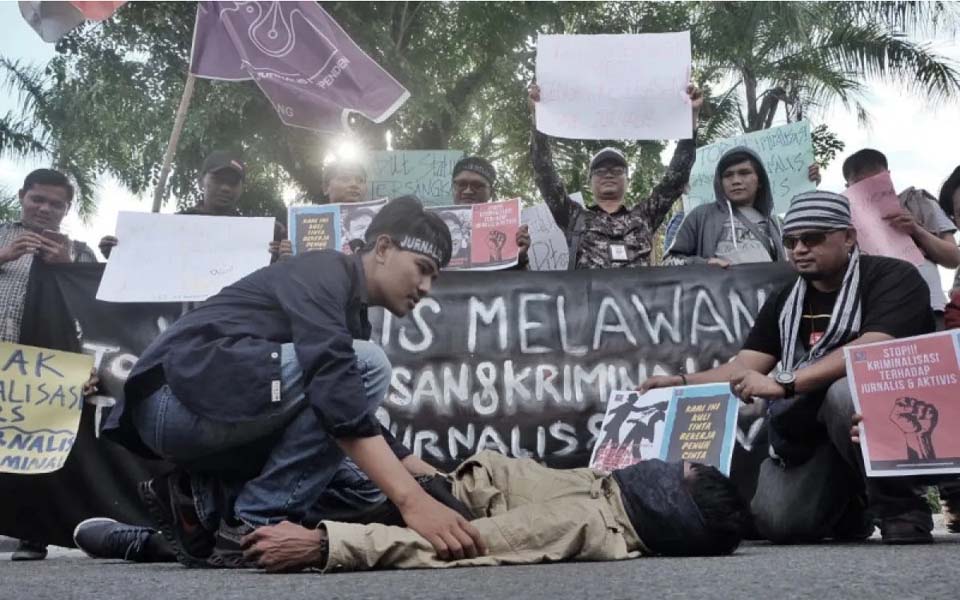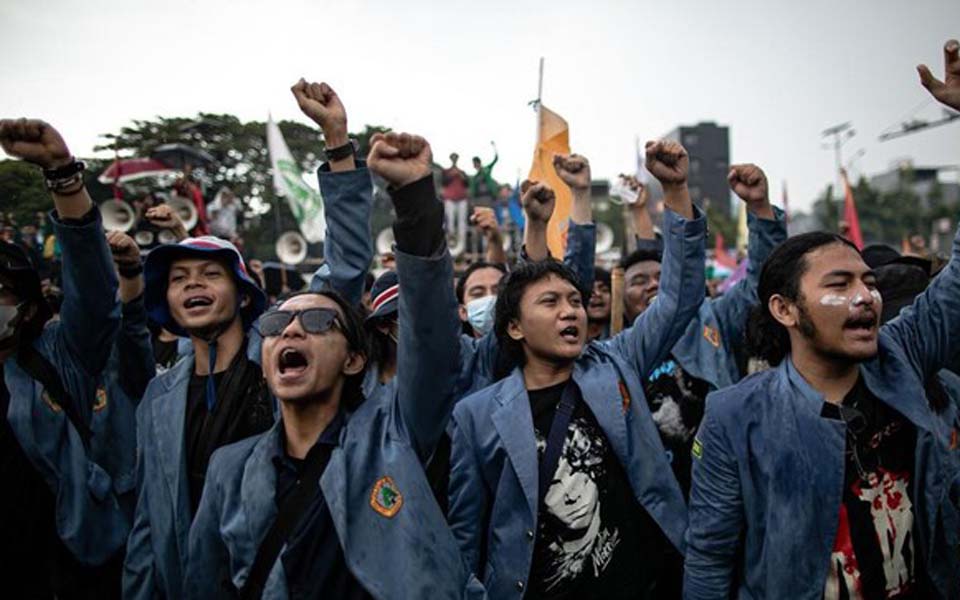Secretly and in violation of internal procedures, the House of Representatives (DPR) passed the revisions to Law Number 34/2004 on the Indonesian National Armed Forces (UU TNI). The revisions to the TNI Law will give more power to the military. Active military officers will be able to occupy positions in 15 ministries and state institutions, military operations other than war have been broadened and the retirement age of soldiers extended.
In addition to this, the National Police (Polri) Law and the Prosecutor's Law will also be revised and the new Criminal Procedural Code (KUHAP) will strengthen and expand the repressive authority of all these institutions. This narrowing of democratic space cannot be separated from the overall policies of the regime of President Prabowo Subianto and Vice President Gibran Rakabuming Raka.
The policies of the Prabowo-Gibran regime really only benefit the elite and oppress the rest of us, first by taking away our welfare, the workers and the ordinary people, and this will be followed by a narrowing of democratic space and increased repression. The weapon is militarism. So we cannot reclaim our welfare.
Prabowo has succeeded in repeating the successes of his predecessor former president Joko "Jokowi" Widodo in consolidating the majority of the existing political elite factions. This consolidation was done out by sharing out access to political power (read positions) and the economic benefits.
The recently established Danantara sovereign wealth fund, which will collect tens of trillions of rupiah in funds, will be directed towards three sectors: natural resource management, AI and digital development, and food and energy security. We can already guess that the political elite, especially the conglomerates who do business in the natural resource, AI and digital, and energy and food sectors, will soon be swimming in Danantara money. Of course, there will also be various fees worth billions or even trillions of rupiah from managing the tens of trillions in assets.
This includes further strengthening the military as the strongest political elite faction in Indonesia since the 1965 Disaster. It is not surprising that in the midst of the government's budget efficiency cuts, the two ministries with the largest budgets are those that function to repress workers and the people. These are the Ministry of Defence (Kemhan) and the TNI with a budget of 139.2 trillion rupiah and the National Police with a budget of 106 trillion rupiah. Next is the Ministry of Social Affairs with 78.6 trillion rupiah, around 90 percent of which will be used as bribes to appease the ordinary people in the form of social assistance. As well as a new institution controlled by the military, namely the National Nutrition Agency with 71 trillion rupiah.
The military now controls Prabowo's flagship free nutritious meals (MBG) program for school children and pregnant mothers. The Indonesian Army is currently preparing a plan to form 100 new battalions to support the MBG and other development programs. The Minister of State-Owned Enterprises has just appointed an active officer, Major General Novi Helmy as the president director of the State Logistic Agency (Bulog). Bulog's position is strategic in procuring goods for the MBG program going forward. Meanwhile, in January, Prabowo held a closed meeting with two hundred selected military officers with the rank of colonel. They were given a short course on management, business, finance and investment. There were discussions that focused on the food and energy sectors. They are targeted to get positions in companies fostered by the Ministry of Defence, state-owned enterprises (BUMN) and regional state-owned enterprises (BUMD). Not to mention the number of territorial command structures that will be doubled.
The Prabowo-Gibran regime has continued and accelerated Widodo's remilitarisation. In general, Indonesia's political elite have weak democratic faith and are cowardly in confronting the military. Reformasi – the political reform process that began in 1998 – or anti-militarism and the democratic transformation have not been completed. The political elite parties, be they the National Mandate Party (PAN), the Indonesian Democratic Party of Struggle (PDI-P), the National Awakening Party (PKB), the Justice and Prosperity Party (PKS), etc., have betrayed the 1998 reformasi.
So although the Indonesian Armed Forces (then called ABRI) was indeed abolished and separated into the TNI and the National Police, many other elements still remain ranging from extra-territorial commands to various military businesses and companies. The Indonesian political elite, government officials of the capitalist state in Indonesia, and/or the bourgeois politicians in Indonesia, are notorious for their poor/shoddy governance, slowness and inefficiency, corruption, being morally depraved, crazy about respect for one's superiors, and so on. The militarists (the same as in the 1950s) claim that this is a failure of civil supremacy or civil government, while spreading the mythos that the military is disciplined, fast-moving, efficient and various other myths, but all of this is more because the militarists want more power for themselves.
The Indonesian military is also accustomed to carrying out rebellions and coups, such as the October 17, 1952 coup attempt or the PRRI/Permesta. In addition to this, they also engineer riots using racism or chauvinist sentiments as we saw in the May 1998 Pogrom. As well as what has become a characteristic of the Indonesian military – building and using reactionary civilian groups for their political interests. The Indonesian military used these groups to raze East Timor to the ground and now we see them also using these groups to deal with actions opposing the revision to the TNI Law.
Civilian bourgeois politicians from time to time happily share power with the military because they are aware that the increasingly obvious evil, depravity and corruption of their government can ultimately only be defended (from the anger and resistance of the people) with military force. This includes efforts to involve the military in government because anti-graft or anti-corruption groups have not been able to touch the military.
Indonesian military history cannot be separated from colonialism and imperialism, namely through the Japanese fascist colonial regime and Dutch colonialism. Former Royal Netherlands Indies Army (KNIL) soldiers during the period of fighting the Dutch military aggression were swept away by a flood of feelings of the superiority of armed struggle over diplomacy (civilian fighters). At the same time, they were also powerless in the face of Defenders of the Motherland (PETA) soldiers (educated by Japanese fascists) who they considered to be uneducated as soldiers. Wherever the Japanese regime invaded and colonised, they established a military government, crushed democracy and organised all social organisations in their interests.
Japanese fascism is one of the roots of Indonesian militarism. The Neighbourhood Association/Community Unit (RT/RW) administrative system was adopted from the Japanese's Tonarigumi system, the PKK (Family Welfare Empowerment) and Darma Wanita (The Five Duties of Women) were from the Fujinkai (women's clubs), Hansip (local security officers) from the Keibodan (civil defence association), the collusion of military conglomerate officials and technocrats was adopted from Zaibatsu (large business conglomerates), and so on. With a corrupt and fascist upbringing, it is only natural that their basic character is not just anti-people but also anti-communist. Both components then eliminated the people's militia through kidnapping and massacre so that they could dominate the Indonesian military.
That the military(ists) are incompetent in managing the country is indeed a direct consequence of this. Not only because the military mostly only learns about war and weaponry, but also because when the military was in power and boosted militarism to a high level, they spent a lot of the budget primarily on the military, thus deflating the budget for the ordinary people such as the health and education sectors.
Japanese militarism caused massive famine because agriculture was prioritised to supply Japan's war needs, when the Dutch oil company and Garuda airlines were nationalised but placed under the military they were ridden with corruption, likewise with power of the New Order regime and the poor management of the military. Thus one example now is the budget efficiency measures in various ministries while the Ministry of Defence (including the TNI) and the National Police, which represent institutions that are not directly related to the welfare of the ordinary people, are the ministries with the largest budgets. Likewise, trillions of rupiah will be spent to add new Regional Military Commands (Kodam) to the military's territorial command structure (Koter), which mandates the deployment of military command units at all levels of the civil administration.
If there are any civilian groups (workers and people) who opposes the military no matter how small, bathing in the blood of their own citizens is no problem for the military! The New Order military regime was established through the massacre of millions of people in 1965-1968. The people of Aceh, Papua and East Timor also suffered this. Not to mention incidents such as the Tanjung Priok tragedy, the Talangsari massacre, the mysterious shooting (petrus), the July 27 tragedy, the Semanggi I and II and Trisakti student shootings, the abduction of pro-democracy activists and the murder of labour activist Marsinah.
What was born by the military and is clung to by the political elites in Senayan (the parliament) today is not just revising the TNI Law which legalizes the military's role in wider politics. Beyond that, the military is preparing 100 development battalions and 22 new Kodam that will be deployed from Sabang to Merauke. In Central and North Kalimantan, the military under the Garuda Task Force has begun to plant TNI signs on the basis of asset control. Many of the lands that have been signposted are plasma plantations belonging to small farmers (small plots of land cultivated by farmers independently). In Merauke, Papua, soldiers have been deployed to guard the 2 million hectare food barn project.
At the same time, Bulog, whose function is to maintain the stability of food prices, distribute rice for social assistance and manage food stocks, is now also led by an active TNI general – which is illegal under current laws. With the military's control of Bulog, they will control the price of grain/rice planted by farmers. Bulog has now set a price of 6,500 rupiah per kg for dry grain to be taken by sub-district military commanders (Danramil) and village supervisory non-commissioned officers (Babinsa). This pricing does not rule out the possibility of burdening farmers due to the high price of fertilizer and the lack of access to sophisticated agricultural equipment. At the same time, it will open the way for the military to do business.
Not only does this impact on farmers, the strengthening of the military in the business sector will also hit the struggle by workers in the factories. One such example is the struggle by workers at PT. Duta Palma, a company that is currently owned by Agrinas Palma Nusantara and is under the control of a retired TNI soldier. Although owned by a retired soldier, like the MBG program which is headed up by a retired soldier, this does not prevent them from accessing military security businesses. TNI soldiers are currently guarding state-owned companies. It is clear that the military's control of the economic sector, which was preceded by political control, is intended to fatten the bellies of the generals!
Resistance must continue, actions must be developed into anti-militarism protests. The demands we should take up are: a) Revoke the TNI Law; b) Defeat the proposed revisions to the National Police Law; c) Arrest, prosecute and imprison the generals who violate human rights; d) Return the military to the barracks; e) Disband the military's territorial command structure; f) Eliminate all anti-democratic and anti-people legislation; g) Eliminate all legislation that legitimises the involvement of the military and police in civilian affairs; h) Cut the budget for institutions that oppress the people including the Ministry of Defence/TNI, the police, the Attorney General's Office, the State Intelligence Agency (BIN), etc., and stop the development of new territorial commands and reallocate this for free education and healthcare, free nutritious food, people's subsidies and workers' and the people's welfare; i) Fight intimidation, criminalisation and the murder of people's activists; j) Reject the military from entering campuses, factories and villages! Return the military to the barracks!
Thus we need to mobilise more of the masses to get involved – hundreds, thousands, tens of hundreds of thousands and even millions of people must take to the streets. To do that, a combination of radical actions with relentless efforts to convince workers and the people is needed.
What we must do is: (1) Leaflets and posters must be distributed to industrial areas, villages and hamlets. They must be distributed along routes and at centres of mass action before protests are launched. That way, when the action is launched, workers and the people can provide support and get involved in the action. (2) Mass actions must be carried out on campuses, in industrial areas and in villages. (3) Thus, progressive, democratic and socialist movements must consolidate nationally in order to coordinate the work of organising and convincing workers and the people, which must be accompanied by radical actions at the grassroots level nationally.
The month of May should become a momentum for us to launch large-scale resistance. Launch a national strike on International Labour Day (May 1) and National Education Day (May 2), then with the momentum of the 1998 Reformasi (May 21, making the day when Suharto resigned) we should launch a national strike and move to the centres of power and occupy them.
An ultimately, to have the power to return the military to the barracks, for civil supremacy, for democracy and welfare. We, the movement, workers and the ordinary people, must have our own political force. With that political force, power can be taken away from the hands of the political elite, the oligarchy and the military. So that we can then build a new society in the interests of workers and the ordinary people.
This leaflet was created by the Socialist Union (Perserikatan Sosialis, PS) and the Socialist Youth Organisation (Organisasi Kaum Muda Sosialis).
- Please download, duplicate, distribute and use the following leaflet: Beware the Dangers of Oligarchy-Style Militarism (English): https://drive.google.com/file/d/15FQWDNimv0biog1GaWKd8Vd8Pe9ExrsC/view?usp=sharing
- Please download, copy, disseminate and use this poster: Anti-Oligarchy Style militarism (English): https://drive.google.com/uc?export=download&id=1u4QSQcwulvy6pdk4TF5A-KYt2XSE3q4B
[Translated by James Balowski. The original title of the article was "Selebaran: Awas Bahaya Militerisme Gaya Oligarki!".]
Source: https://www.arahjuang.com/2025/04/04/selebaran-awas-bahaya-militerisme-gaya-oligarki/





